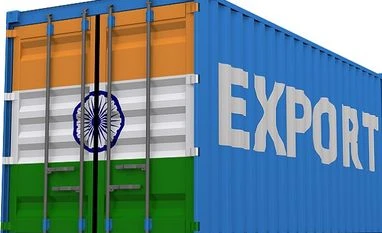Union Commerce Secretary Rita Teotia today expressed hope that the current border standoff between India and China will not have any impact on the bilateral trade.
She also dismissed concerns that the confrontation between the two neighbours on the Sikkim sector will affect the ongoing Regional Comprehensive Economic Partnership (RCEP) negotiations.
"I would hesitate to classify it in such a way (that it would impact bilateral trade). Of course, this is not the remit of the department of commerce, but we would hope that the regular trade between the two countries would move ahead and move in a way that is positive for everybody," Teotia said on the sidelines of the 19th round of negotiations on the RCEP here.
Indian and Chinese soldiers are locked in a face-off at the Doklam area, which is roughly 15 km southeast of the Nathu La Pass that separates India and China and about 30 km southwest of the river Dramana Chhu in Bhutan. Last month, the Indian Army stopped Chinese road construction activities in Doklam area, which is claimed by China as its own, and since then the standoff has continued.
India's trade deficit with China has marginally dipped to $51 billion in 2016-17 from $52.69 billion in the previous fiscal, commerce and industry minister Nirmala Sitharaman told Parliament today.
The country's bilateral trade with China stood at $71.48 billion in 2016-17.
Teotia also allayed the apprehensions that the current standoff between the two largest countries in Asia would impact the RCEP talks, saying "our negotiators would keep in mind" the national interests.
"(In) our negotiations, we are very clear what our trade interests are. Every country is negotiating for moving forward constructively, of course taking care of its own economic interests. And I think our delegation is very aware of that responsibility," Teotia said when asked about the impact of border tension on the trade discussions.
She also said a ministerial-level meeting of the regional trade agreement will be held in Manila in September and all the member countries have actually made conscious efforts to move forward.
"The work on the goods side has been quite substantial also. And now all the member-countries have given their revised offers also. Those will be under discussion now," she added.
The 16-member RCEP bloc comprises 10 Asean members (Brunei, Cambodia, Indonesia, Malaysia, Myanmar, Singapore, Thailand, the Philippines, Laos and Vietnam) and their six FTA partners -- India, China, Japan, South Korea, Australia and New Zealand.
These 16 countries accounts for over a quarter of the over $75 trillion global economy.
She said India is looking for a balanced agreement in which there would be give and take between any two agreed countries in RECP.
She also dismissed concerns that the confrontation between the two neighbours on the Sikkim sector will affect the ongoing Regional Comprehensive Economic Partnership (RCEP) negotiations.
"I would hesitate to classify it in such a way (that it would impact bilateral trade). Of course, this is not the remit of the department of commerce, but we would hope that the regular trade between the two countries would move ahead and move in a way that is positive for everybody," Teotia said on the sidelines of the 19th round of negotiations on the RCEP here.
More From This Section
She was in the city to participate in the RCEP trade negotiations committee meeting.
Indian and Chinese soldiers are locked in a face-off at the Doklam area, which is roughly 15 km southeast of the Nathu La Pass that separates India and China and about 30 km southwest of the river Dramana Chhu in Bhutan. Last month, the Indian Army stopped Chinese road construction activities in Doklam area, which is claimed by China as its own, and since then the standoff has continued.
India's trade deficit with China has marginally dipped to $51 billion in 2016-17 from $52.69 billion in the previous fiscal, commerce and industry minister Nirmala Sitharaman told Parliament today.
The country's bilateral trade with China stood at $71.48 billion in 2016-17.
Teotia also allayed the apprehensions that the current standoff between the two largest countries in Asia would impact the RCEP talks, saying "our negotiators would keep in mind" the national interests.
"(In) our negotiations, we are very clear what our trade interests are. Every country is negotiating for moving forward constructively, of course taking care of its own economic interests. And I think our delegation is very aware of that responsibility," Teotia said when asked about the impact of border tension on the trade discussions.
She also said a ministerial-level meeting of the regional trade agreement will be held in Manila in September and all the member countries have actually made conscious efforts to move forward.
"The work on the goods side has been quite substantial also. And now all the member-countries have given their revised offers also. Those will be under discussion now," she added.
The 16-member RCEP bloc comprises 10 Asean members (Brunei, Cambodia, Indonesia, Malaysia, Myanmar, Singapore, Thailand, the Philippines, Laos and Vietnam) and their six FTA partners -- India, China, Japan, South Korea, Australia and New Zealand.
These 16 countries accounts for over a quarter of the over $75 trillion global economy.
She said India is looking for a balanced agreement in which there would be give and take between any two agreed countries in RECP.
)